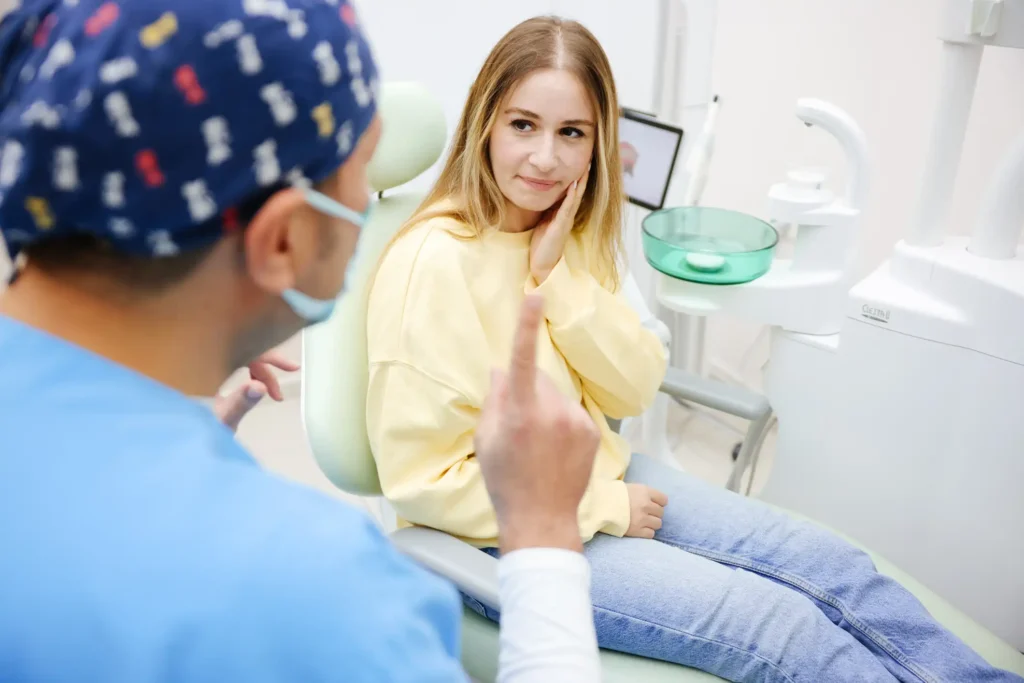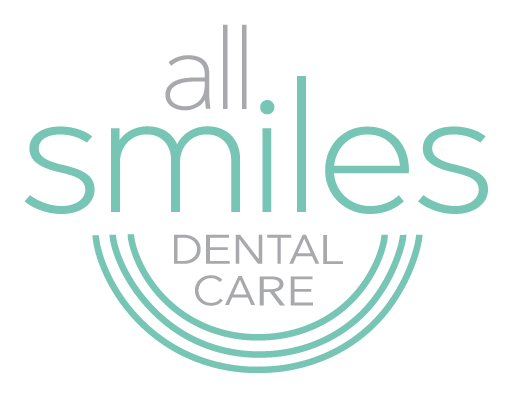Top 5 Signs You Might Need a Dental Emergency Visit
Top 5 Signs You Might Need a Dental Emergency Visit
Emergency dental issues often happen at the worst possible time. When dental problems strike unexpectedly, All Smiles Dental Care is here for you. Knowing the difference between a minor dental problem and a true emergency can save you from unnecessary pain, prevent further complications, and even save your tooth. This guide will walk you through the top dental emergency signs, explain what to do when they occur, and help you understand when to seek urgent dental care.

What Is a Dental Emergency?
A dental emergency is any issue that requires immediate attention to stop severe pain, halt ongoing bleeding, or save a tooth that is at risk of being lost. It also includes any oral infection that could become life-threatening. While a chipped tooth that isn’t causing pain can likely wait, other situations demand a prompt response.
Top 5 Signs You Might Need a Dental Emergency Visit
If you experience any of the following, it’s a clear signal that you should seek emergency dental help. Contact our team immediately if you have these issues.
1. Severe, Persistent Tooth Pain
A mild toothache that comes and goes might not be an emergency, but severe, throbbing pain that doesn’t subside is a major red flag. Intense pain is your body’s way of telling you something is wrong. It could be a sign of an advanced cavity, a cracked tooth, or, a dental abscess. You can try rinsing with salt water for immediate emergency tooth pain relief, but professional treatment is essential.
2. A Knocked-Out or Loose Tooth in an Adult
A direct impact to the face from a fall, car accident, or sports injury can loosen or completely knock out a tooth. This is a clear dental emergency. If a tooth is knocked out, there is a small window of time, often less than an hour, in which it can be successfully reimplanted. A loose tooth in an adult is also a serious concern, as it indicates a significant injury to the supporting structures and requires immediate stabilization by an emergency dentist.
3. Uncontrolled Bleeding from the Mouth
While a little bleeding after flossing is common, bleeding from your mouth that won’t stop is not normal. Continuous bleeding could be a symptom of advanced gum disease or a sign of a traumatic injury. If you are experiencing heavy bleeding, especially after an extraction or injury, you need urgent dental care to control the blood loss and address the underlying cause.
4. Swelling in Your Jaw or Face
Noticeable swelling in your cheek, jaw, or around your neck is one of the most serious dental emergency signs. Swelling often indicates a spreading infection, such as a dental abscess that has moved into the surrounding tissue. An infection of this nature can become life-threatening if it spreads further or begins to obstruct your airway.
5. A Broken or Badly Cracked Tooth
A minor chip isn’t an emergency, but a large break or a severe crack that exposes the inner layers of the tooth is. A significant fracture can cause intense pain and leaves the tooth’s nerve vulnerable to infection. If a large piece of your tooth has broken off, prompt attention is required to relieve pain, prevent infection, and attempt to save the tooth.
Why You Shouldn’t Ignore These Signs
Ignoring the symptoms of dental emergencies can lead to severe consequences. An untreated infection can spread to other parts of your body, a knocked-out tooth can be lost forever, and what started as a manageable problem can escalate into a need for complex and costly procedures like a root canal or tooth extraction. It’s vital to take fast action for a positive outcome.
What to Do in a Dental Emergency
The most important thing in a dental emergency is to stay calm. While you arrange to see a dentist, here are a few immediate steps you can take:
- For a Knocked-Out Tooth: Gently rinse the tooth with milk or water, avoiding the root. Try to place it back in the socket. If you can’t, keep it moist in a small container of milk or your own saliva and get to a dentist immediately.
- For Severe Pain: Rinse your mouth with warm salt water. A cold compress on the outside of your cheek can help reduce swelling and numb the area.
- For Bleeding: Apply gentle, firm pressure to the area with a clean piece of gauze.
- For a Broken Tooth: Try to save any broken pieces of tooth, and rinse your mouth with warm water.
How to Find Emergency Dental Care
Our dental office is here for you during a dental emergency. It’s essential to contact us because we know your dental history. Reach out to us immediately to determine the best time to come in and address your emergency needs.
Preventing Dental Emergencies
We know not all emergencies are preventable. Here are some tips to help lower the risk of dental emergencies:
- Wear a mouthguard during sports.
- Avoid chewing on hard items like ice, popcorn kernels, and hard candy.
- Use scissors, not your teeth, to open packages.
- Maintain positive oral hygiene.
- Attend regular dental checkups.

Contact All Smiles Dental Care
All Smiles Dental Care is here to help you through dental emergencies. By recognizing the top dental emergency signs, you can potentially save your teeth and enhance your oral health. If you are experiencing any of these symptoms, don’t wait. Contact our dental office immediately to get the care you need.
Frequently Asked Questions
- When should I go to the emergency room instead of a dentist? If you have a dental issue with a high fever, difficulty breathing or swallowing, or uncontrolled bleeding, you should go to the hospital emergency room. The ER can manage life-threatening symptoms, but you must still see a dentist to treat the underlying dental problem.
- Is a lost filling or crown a dental emergency? While it can be uncomfortable, a lost filling or crown is not typically considered a dire emergency unless you are in severe pain. You should, however, call your dentist promptly to schedule an appointment to have it repaired to prevent further damage or decay to the exposed tooth.
- What can I do for emergency tooth pain relief at home? For temporary relief while you wait for your appointment, you can rinse with warm salt water, apply a cold compress to your cheek, or take over-the-counter pain relievers. You will need to make a dental appointment to address the root cause of your pain.
